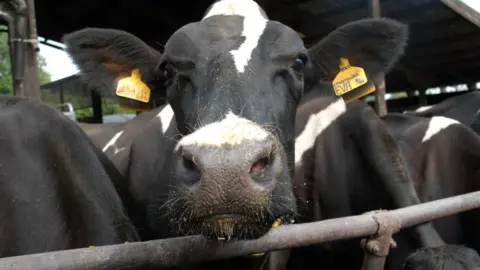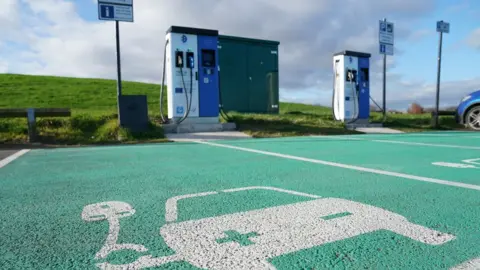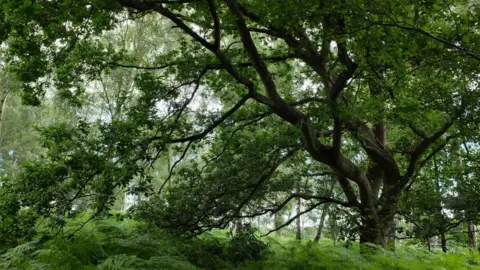NI agriculture review: Covid-19 and Brexit make for a difficult year
 BBC
BBCCovid and Brexit combined to make it a difficult year for our farmers.
The closure of bars and restaurants depressed demand for milk and meat.
Shutting the marts limited the opportunities to sell livestock - an income lifeline for the industry.
Eventually Stormont found cash to shore up farm businesses and fishermen who had also suffered.
The climate debate is something that will affect the farming sector too.
And in 2020 there was movement on new legislation.
Environmentalists presented their own draft bill and the minister began consulting on a departmental one.
The direction of travel, for local laws and targets, appears to be set.
And for the first time we have a big number for which to aim.
The Committee on Climate Change is an advisory body to the UK and devolved administrations.
It said we should aim to cut our greenhouse gas emissions by 82% by 2050 and that our economic dependence on agriculture made a net zero target difficult.
 PA Media
PA MediaAction on climate is going to be a big conversation in the years ahead.
Agriculture, transport and power generation are the big three challenges.
But it will mean lots of other policies too, like peatland restoration and tree planting, natural solutions to the climate challenge.
The environment minister announced plans for 18m trees by 2030 - what he's called Forests for Our Future.
Northern Ireland Water has announced its intention to plant one million trees on its estate as part of that drive.
It is a welcome intervention, but only part of what will be needed in what is one of the least wooded parts of Europe.

With the coming of winter, Brexit, came back into sharp relief.
Thousands of sheep, bought by local farmers in Scotland, are stranded because they can't comply with strict new import rules at the end of the Brexit transition.
The agreement between the EU and the UK on the working of the Northern Ireland Protocol went some way to ease industry anxieties.
But it is possible that once systems are up and running, we could start to see issues arising where they hadn't been predicted.
